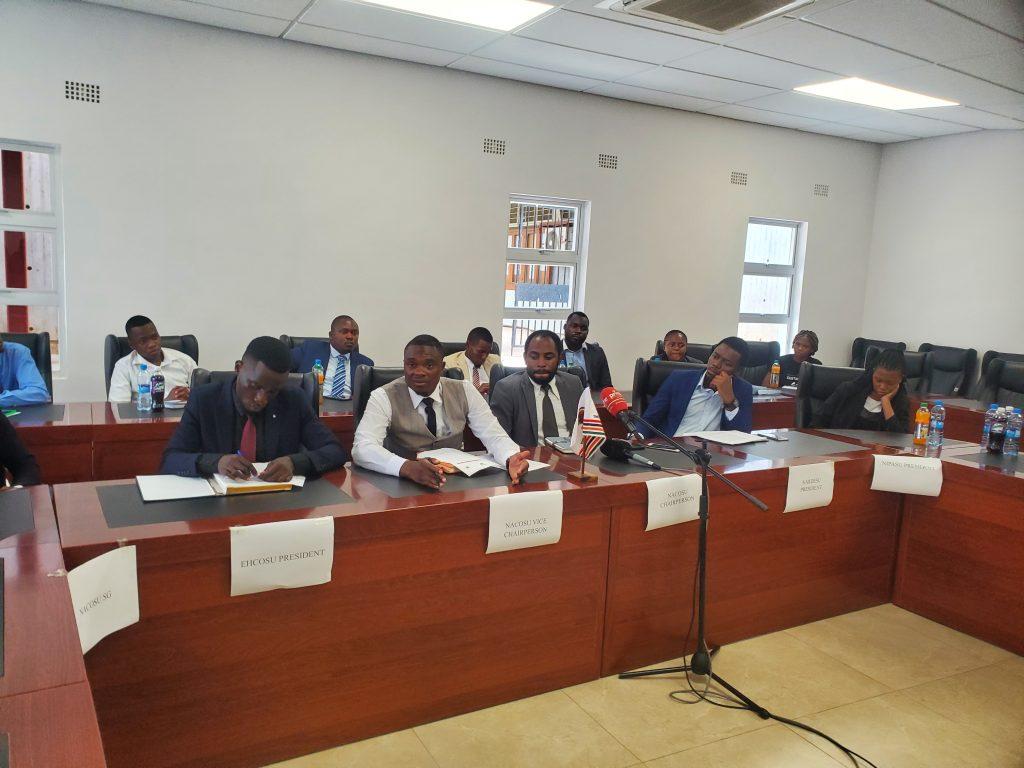“Frontline Advocacy”
Chiinza says student unions will campaign for Zambia’s climate crisis and higher education support

By Francis Maingaila
Lusaka, Zambia24 (10-03-2024) – The National Council of Student Unions (NACOSU) is urging both official and private creditors to accelerate Zambia’s debt restructuring process, highlighting the nation’s precarious situation exacerbated by unprecedented challenges, notably from climate change impacting health, agriculture, energy, and security.
Brian Chiinza, NACOSU Secretary General, told journalists at a media briefing that the El Nino crisis has worsened Zambia’s already fragile agricultural season, affecting over a million farmers and subjecting the whole country to food insecurity.

He expressed an urgent need to have the debt restructured to alleviate economic burdens aggravated by the crisis, underlining the importance of unity and collective action amid the pervasive threat of climate change, particularly in the agricultural sector.
Chiinza advocated for prioritizing environmental conservation and adopting sustainable farming practices to enhance resilience and food security, acknowledging government initiatives like the Farmer Input Support Program but noting their limited effectiveness against the impact of El Nino.
He urged youth and students to embrace adversity as an opportunity for self-improvement and collective action, emphasizing environmental conservation and sustainable farming practices.
While acknowledging challenges, Chiinza reaffirmed solidarity with the government’s efforts, highlighting collective resilience and determination in navigating turbulent times.
“Unity, solidarity, and a commitment to sustainable progress were underscored as crucial for overcoming climate change challenges and ensuring a brighter future for all,” he said.
And speaking at the same briefing, Vinicent Musilikani, President of the University of Zambia Student Union (UNZASU) and Vice President of NACOSU, expressed gratitude to President Hakainde Hichilema for initiatives supporting students in higher education, such as covering registration fees, increasing meal allowances, and assisting with accommodation fees.
Musilikani highlighted the significant positive impact of these initiatives on students nationwide, relieving financial burdens and enabling greater focus on academic pursuits.
He emphasized that alleviating the financial burden of higher education will make it more accessible, empowering students to invest in their academic futures and contribute to national development, thus reflecting the government’s dedication to citizen well-being and prosperity, with education as a cornerstone of national development.
Meanwhile, Bill Chaiwa, President of the Evalyn Hone College Student Union, appreciated the government’s impact on higher education, particularly in reinstating meal allowances and increasing support for student loans and bursaries.
He emphasized the importance of expanding student financial aid to more institutions, highlighting the upcoming 2023 education curriculum’s focus on essential skills such as arts and crafts, digital literacy, financial education, and entrepreneurship.
Chaiwa noted the transformative effect of free education, leading to increased enrollment in higher learning institutions, but called for government attention to infrastructure concerns, including incomplete hostels and the construction of lecture theaters, to ensure adequate facilities for students and educators alike.
